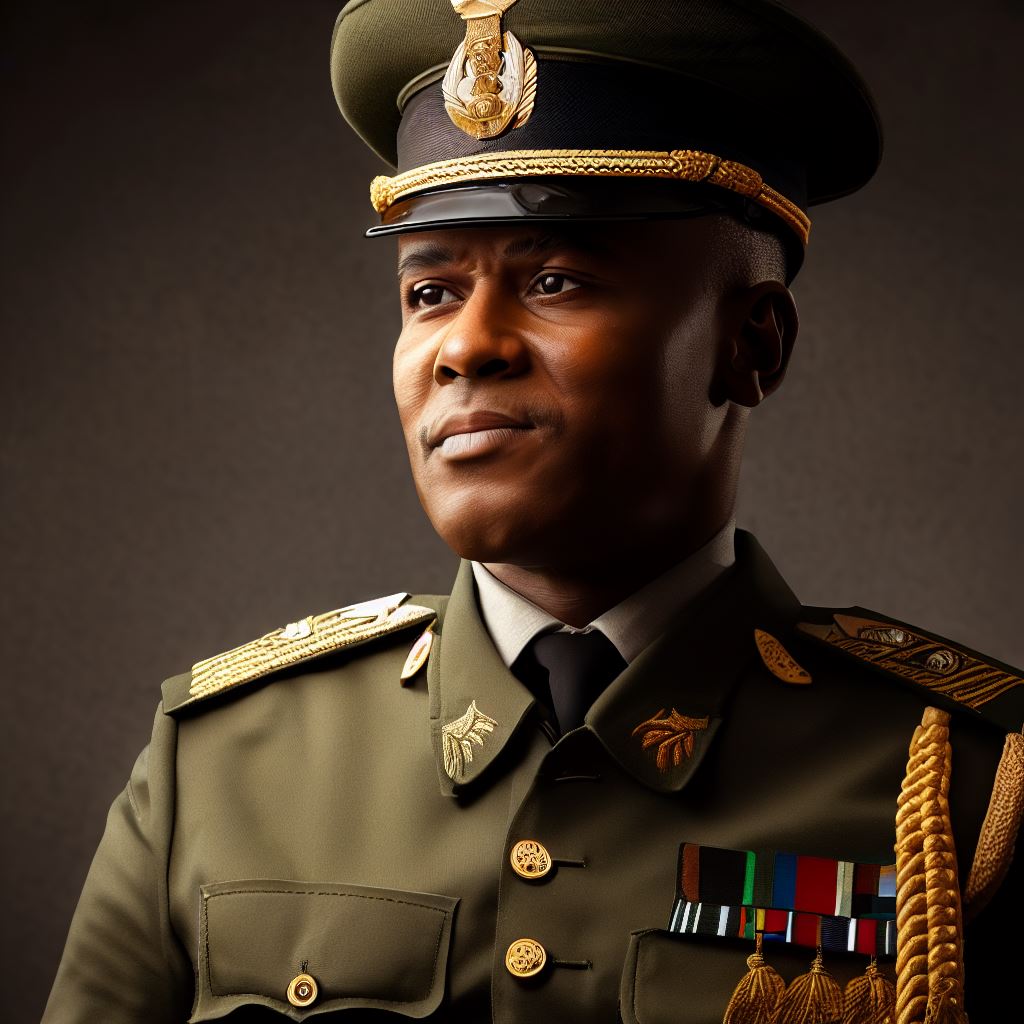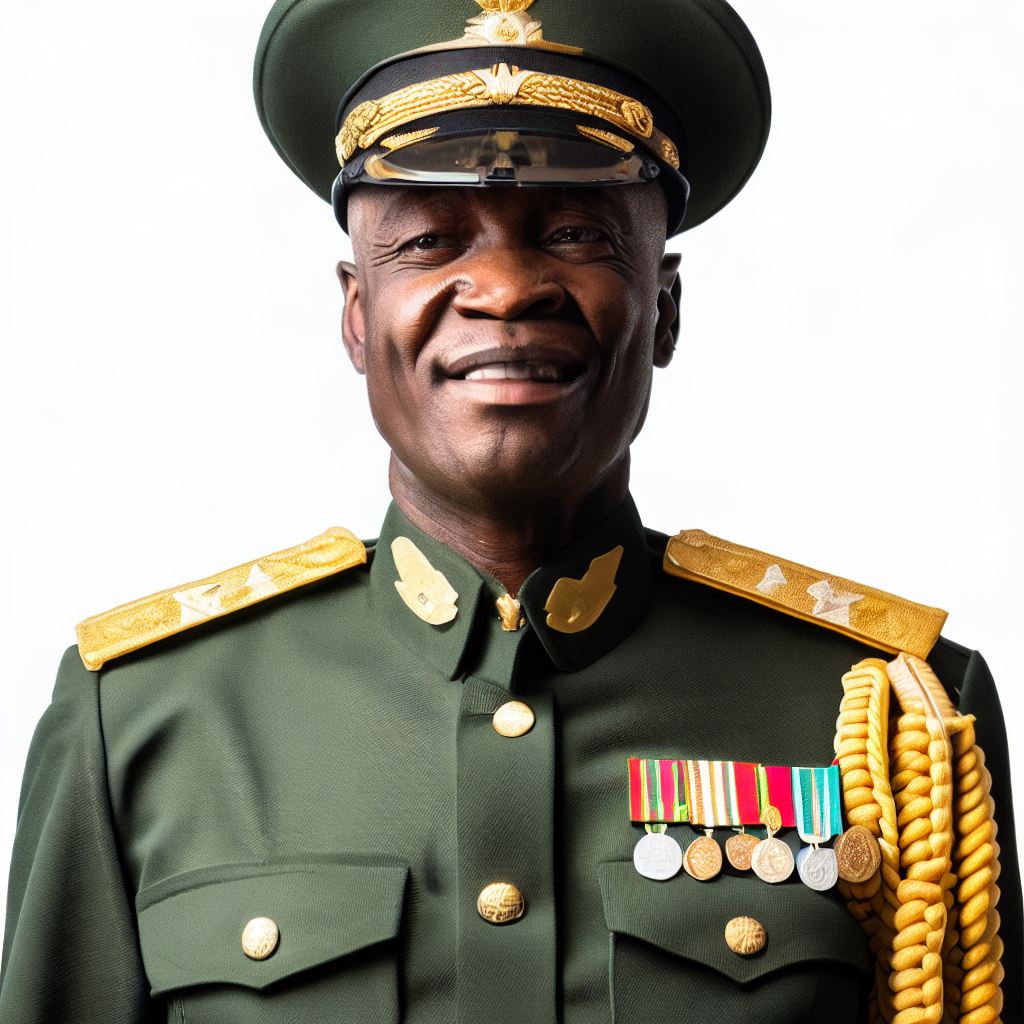Introduction
Retirement from the military in Nigeria is a crucial phase, and understanding what comes next is of utmost importance.
This blog post aims to provide guidance and information to retiring military personnel.
Background on Military Retirement in Nigeria
The Nigerian military retirement process is a well-structured transition.
Officers and soldiers serve until they reach the mandatory retirement age, typically 60 years. They must accumulate at least 35 years of service.
Upon retirement, military personnel receive a pension, which is a percentage of their last salary, based on years of service. Additionally, they get a lump sum gratuity, a one-time payment.
Healthcare benefits are provided, ensuring retirees have access to medical services. This includes their immediate family members.
Housing is another critical benefit. Retired military personnel often have access to affordable housing schemes.
Education assistance is extended to their children, with tuition fees partially or fully covered, depending on rank and years of service.
Retirees can access loans at favorable interest rates to help start businesses or invest in other ventures.
The Nigerian government has taken steps to improve post-retirement benefits.
However, challenges remain, such as delays in pension payments and insufficient healthcare facilities in some areas.
In summary, military retirement in Nigeria involves reaching a mandatory age and years of service.
The benefits, including pensions, healthcare, housing, and education assistance, aim to support veterans as they transition to civilian life.
Despite some challenges, efforts are ongoing to enhance these benefits and ensure a smooth retirement process for military personnel.
Read: Technology in Nigeria’s Military: Officer Insights
Challenges Faced by Retired Military Personnel
Retirement from the military can be a challenging transition for personnel in Nigeria.
After years of service, they are faced with various challenges as they embark on a new chapter in their lives.
This section discusses the common challenges faced by retired military personnel in Nigeria.
A. Financial Challenges
Retired personnel may struggle with transitioning to civilian life, finding new employment opportunities, and managing their finances effectively.
The following are some of the specific financial challenges they face:
- Transitioning to civilian life: It can be difficult for retired military personnel to adjust to a civilian lifestyle, which often comes with different financial demands and expectations.
- Job hunting: Finding suitable employment after retirement can be challenging, as military skills and experiences may not always translate directly to civilian jobs.
- Budgeting: Retired personnel may face difficulties in managing their finances and creating a budget that aligns with their reduced income and potential changes in lifestyle.
B. Psychological Challenges
Retirement from the military can also bring about psychological challenges for personnel, as they navigate a new routine and adapt to life without the camaraderie and identity associated with their military service.
Some common psychological challenges are:
- Adjusting to a different routine: Retired personnel may struggle with establishing a new daily routine and finding a sense of purpose outside of the military.
- Loss of camaraderie: The close bonds formed with fellow military personnel can be challenging to replace, leading to feelings of isolation and loneliness.
- Identity crisis: Retired military personnel may grapple with a loss of identity, as their role and sense of self were closely tied to their military service.
C. Health Challenges
Maintaining good health and accessing necessary healthcare facilities and services can also be a significant challenge for retired military personnel.
The following are some common health challenges they may face:
- Access to healthcare facilities and services: Retired personnel may encounter difficulties in accessing appropriate healthcare, especially if they live in remote areas with limited healthcare infrastructure.
- Retirement-related health issues: Certain health issues may arise or worsen after retirement, potentially requiring specialized care and leading to increased healthcare expenses.
Retired military personnel in Nigeria face a range of challenges upon their transition from the military.
These challenges include financial adjustments, psychological adaptations, and healthcare concerns.
Recognizing and addressing these challenges can help support retired personnel in their journey to a fulfilling life after service.
Read: Nigerian Air Force Officers: A Career Overview
Opportunities for Post-Retirement Career and Entrepreneurship
In Nigeria, retired military personnel have a range of opportunities available to them as they transition into civilian life.
This section explores potential career options and entrepreneurship opportunities for those who have served their nation dutifully.
A. Potential Career Options for Retired Military Personnel in Nigeria
- Security Consultancy: Retired military personnel possess valuable expertise in security matters and can offer consulting services to organizations.
- Law Enforcement: Many retired military personnel find post-retirement careers in law enforcement agencies, utilizing their training and experience.
- Private Security: Starting or joining a private security company is a viable option, leveraging skills in protection and risk management.
- Civil Service: Transitioning into the civil service sector allows retirees to continue serving the country in different capacities.
- Teaching and Training: Retired military personnel can share their knowledge by becoming instructors or trainers in military or security-related institutions.
- Project Management: The organizational and leadership skills acquired during military service make retired personnel well-suited for project management roles.
- Logistics and Supply Chain: Military personnel often gain extensive experience in logistics and supply chain management, which can be transferred to civilian industries.
- Emergency Response: The ability to remain calm under pressure and make quick decisions can be valuable in emergency response and disaster management roles.
- Aviation Industry: Retired military pilots can explore opportunities in the commercial aviation sector, flying for airlines or working as flight instructors.
- Medical and Healthcare: Former military medics and healthcare professionals can find fulfilling careers in the healthcare industry.
B. Leveraging Military Skills and Experience in Civilian Roles
Retired military personnel possess a unique skill set that can be valuable in various civilian roles.
- Leadership and Management: Military personnel are trained to lead and manage teams effectively, making them desirable candidates for leadership roles in organizations.
- Discipline and Work Ethic: The discipline and strong work ethic instilled in military personnel make them reliable and dedicated employees.
- Problem Solving: Military personnel are experienced problem solvers, able to think analytically and find solutions under high-pressure situations.
- Adaptability: The ability to adapt to changing circumstances and environments is a valuable trait that military personnel possess.
- Teamwork and Collaboration: Years of working in teams equip military personnel with strong teamwork and collaboration skills.
- Resilience and Stress Management: Military personnel have undergone rigorous training that prepares them to handle stressful situations with resilience.
- Technical Skills: Depending on their specialization, military personnel may have technical skills that can be transferred to civilian industries.
C. Introduction to Entrepreneurship Opportunities
For retired military personnel seeking to start their own businesses or pursue entrepreneurship, several opportunities are available:
- Starting a Business: Many successful entrepreneurs begin their ventures after retiring from the military, utilizing their skills and experience.
- Franchising: Investing in a franchise can be an attractive option, benefiting from an established brand and support system.
- Consulting: Retired military personnel can offer consulting services in their areas of expertise, providing guidance to businesses or organizations.
- Security Services: Starting a security services company can be a lucrative venture, capitalizing on the knowledge and experience gained in the military.
- Technology and Innovation: Military personnel often acquire technological skills that can be leveraged to develop innovative products or services.
- Construction and Engineering: Retired military personnel with engineering backgrounds can explore opportunities in the construction industry.
- Transportation and Logistics: Leveraging experience in logistics and transportation, retired military personnel can start logistics companies or provide consulting services.
- Manufacturing: Setting up a manufacturing business, especially in defense-related industries, can be a viable option for retired military personnel.
Retirement from the military in Nigeria does not mark the end of a fulfilling career.
Opportunities abound for post-retirement careers and entrepreneurship, allowing retired military personnel to continue making valuable contributions to society.
Read: Nigerian Naval Officers: Roles and Responsibilities
Financial Planning for Retirement
Retiring from the military in Nigeria is a significant milestone, but it is crucial to plan for the future after leaving active service.
One essential aspect of retirement planning is financial preparation.
This blog section explores the importance of financial planning after retirement from the military, discussing savings, investments, pension schemes available for retired military personnel, and the significance of seeking professional financial advice.
A. Importance of Financial Planning After Retirement
- Ensuring a Stable Financial Future: Financial planning helps retired military personnel secure a stable and comfortable future.
- Managing Expenses: Proper financial planning assists in managing post-retirement expenses and maintaining a desirable standard of living.
- Creating a Budget: Planning finances enables individuals to create a budget that aligns with their post-military lifestyle and finances.
- Emergency Preparedness: Financial planning ensures there are funds available for unexpected situations and emergencies.
- Peace of Mind: With a well-executed financial plan, retirees can enjoy peace of mind knowing they have adequately prepared for their financial future.
B. Savings, Investments, and Pension Schemes
Retired military personnel have various options to consider when it comes to savings, investments, and pension schemes.
These options include:
- Savings Accounts: Opening a savings account is a secure method of saving money and earning interest.
- Fixed Deposits: Investing in fixed deposits offers higher interest rates and fixed returns over a fixed period.
- Stocks and Bonds: Investing in stocks and bonds can provide long-term returns, but it comes with certain risks.
- Real Estate: Retirees can invest in real estate properties, earning rental income or selling properties at a profit.
- Pension Schemes: Exploring pension schemes available specifically for retired military personnel is crucial.
C. Seeking Professional Financial Advice
Retirees from the military are strongly advised to seek professional financial advice to make informed decisions regarding their finances and retirement plans.
Here’s why it is significant:
- Expert Guidance: Financial advisors possess knowledge and expertise in retirement planning, offering invaluable guidance.
- Customized Plans: Professionals tailor financial plans based on individuals’ specific needs, goals, and risk tolerance.
- Maximizing Returns: Advisors can help retirees maximize their savings and investments, ensuring optimum returns.
- Risk Mitigation: Professionals assist in mitigating financial risks by diversifying investments and providing sound advice.
- Legal and Tax Compliance: Financial advisors ensure retirees comply with legal and tax regulations associated with their financial planning.
In essence, financial planning after retirement from the military in Nigeria is crucial for a stable and comfortable future.
Retired military personnel should consider various options like savings, investments, and pension schemes.
Seeking professional financial advice adds immense value by providing expert guidance, customized plans, maximizing returns, mitigating risks, and ensuring legal and tax compliance.
Secure your financial future by starting your post-retirement financial planning today!
Read: The Ethics of Service: Nigerian Military Officers

Support Programs and Organizations for Retired Military Personnel
Retirement from the military in Nigeria can be both liberating and challenging for servicemen.
After dedicating their lives to protecting the nation, transitioning to civilian life can be overwhelming.
However, the government and various organizations have established support programs and initiatives to ease their transition and provide assistance.
In this section, we will provide an overview of government initiatives and support programs, introduce non-governmental organizations and associations, and describe the available resources, mentorship programs, and networking opportunities for retired military personnel.
A. Government Support Initiatives and Programs
The Nigerian government acknowledges the importance of supporting retired military personnel in their post-service life.
Several initiatives have been implemented to cater to their needs:
- Retirement Benefits: The government provides retirement benefits to military personnel, including pensions, gratuity, and other financial incentives.
- Healthcare Services: Retired military personnel have access to healthcare services through the Nigerian Armed Forces Resettlement Center (NAFRC), which offers medical facilities and treatment options.
- Reintegration Programs: The government organizes reintegration programs to help retired military personnel adjust to civilian life, providing vocational training and job placement assistance.
- Welfare Support: Various welfare programs are available to retired personnel and their families, including housing schemes and educational benefits for their children.
B. Non-Governmental Organizations and Associations
In addition to government initiatives, several non-governmental organizations (NGOs) and associations actively support retired military personnel:
- The Nigerian Legion: The Nigerian Legion is a veteran association that promotes the welfare and wellbeing of retired military personnel. It provides assistance in areas such as healthcare, housing, and educational support.
- The Veterans Federation of Nigeria (VFN): The VFN is a coalition of retired military personnel which aims to foster unity and promote the welfare of its members.
- The Nigerian Army Officers’ Wives Association (NAOWA): NAOWA is an organization composed of the wives of Nigerian Army officers, committed to supporting retired personnel and their families through various initiatives.
- The Nigerian Military Veterans Foundation (NMVF): This NGO focuses on addressing the psychological and emotional needs of retired military personnel, providing counseling and mental health support services.
C. Available Resources, Mentorship Programs, and Networking Opportunities
Retired military personnel have access to various resources, mentorship programs, and networking opportunities to facilitate their transition:
- Skills Training and Entrepreneurship Programs: Many organizations offer training programs to enhance the skills of retired personnel and support them in starting their businesses.
- Mentorship Programs: Retired military personnel can benefit from mentorship programs where experienced veterans guide and advise them on their post-retirement endeavors.
- Professional Associations: Joining professional associations related to their field of interest enables retired military personnel to expand their networks and access job opportunities.
- Online Communities and Platforms: Several online platforms and communities exist where retired military personnel can connect, share experiences, and seek guidance.
In review, retiring from the military in Nigeria opens up a new chapter for servicemen.
The government, along with NGOs and associations, provides various programs, resources, and opportunities to support their transition and wellbeing.
By taking advantage of these initiatives, retired military personnel can successfully navigate their post-service life and contribute to society in new and meaningful ways.
Emotional and Psychological Support
During the transition from the military to civilian life, it is important for retired personnel to seek emotional and psychological support.
This support can play a crucial role in helping them navigate the challenges that arise during this time.
A. Importance of seeking emotional and psychological support
- Mental well-being: The change from a highly structured military life to civilian life can be overwhelming and may negatively impact mental health. Seeking support can assist in managing stress, anxiety, and depression.
- Transition difficulties: Retiring from the military can bring about a sense of loss, identity crisis, and even post-traumatic stress disorder (PTSD). Emotional and psychological support provides a safe space to discuss and process these challenges.
- Family relationships: The transition affects not only the retired personnel but also their family members. Seeking support can help in improving communication, resolving conflicts, and rebuilding relationships strained by the military lifestyle.
- Coping mechanisms: Military life often revolves around specialized training and skills. Finding new ways to adapt to civilian life can be daunting. Emotional and psychological support can offer guidance and teach coping strategies for a successful transition.
B. Introduction to counseling services and support groups
Counseling services and support groups specifically catered to retired military personnel can be invaluable resources in the journey towards a fulfilling civilian life.
- Individual counseling: Retired military personnel can benefit greatly from one-on-one counseling sessions with trained professionals. These sessions provide a safe and confidential environment to address personal concerns and challenges.
- Group counseling: Support groups consist of individuals who share similar experiences and struggles. These groups offer a sense of camaraderie and understanding, fostering a supportive network for retired military personnel.
- Military transition programs: Several organizations and government agencies offer specialized programs to assist retiring military personnel. These programs focus on providing counseling and support during the transition period.
- Veterans associations: Joining veterans associations can provide retired military personnel with access to a community of individuals who have gone through similar experiences. These associations often offer counseling services and opportunities for socializing and networking.
C. Encouragement to maintain social connections and seek help
Retired military personnel should be encouraged to maintain their social connections and seek help when needed.
This helps to build a support system and enhances overall well-being.
- Open communication: Retirees should maintain open lines of communication with friends, family, and fellow military personnel. Sharing concerns and seeking advice can help alleviate stress and provide valuable insights.
- Utilize available resources: Retired military personnel should familiarize themselves with the available resources and support services. Being aware of the options and actively seeking help when needed can make a significant difference.
- Engage in hobbies and activities: Pursuing hobbies and activities that bring joy and fulfillment can contribute to a sense of purpose and provide a distraction during the transition. Engaging in social activities can also help build new connections.
- Proactive self-care: Retirees should prioritize self-care activities such as exercising, eating well, and getting enough rest. These practices can have a positive impact on mental and emotional well-being.
In a nutshell, seeking emotional and psychological support during the transition from the military to civilian life is crucial.
It promotes mental well-being, assists in navigating the challenges of change, strengthens family relationships, and provides coping mechanisms.
Counseling services and support groups offer tailored assistance, while maintaining social connections and seeking help when needed further enhance the overall transition experience.
Conclusion
This blog post has highlighted key points regarding retirement from the military in Nigeria.
It has emphasized the importance of planning for retirement, as it ensures a smooth transition and financial stability.
Retired military personnel are encouraged to embrace new opportunities and explore different paths.
It is essential to leverage the skills and experience gained during military service to pursue rewarding careers or start businesses.
However, it is crucial to acknowledge that the transition from military to civilian life can be challenging.
It is recommended to seek support from organizations, fellow retirees, and family members who can provide guidance and assistance during this phase.
Retiring from the military in Nigeria requires careful planning and preparation.
By taking proactive steps towards financial security and exploring new opportunities, retired personnel can enjoy a fulfilling post-military life.




